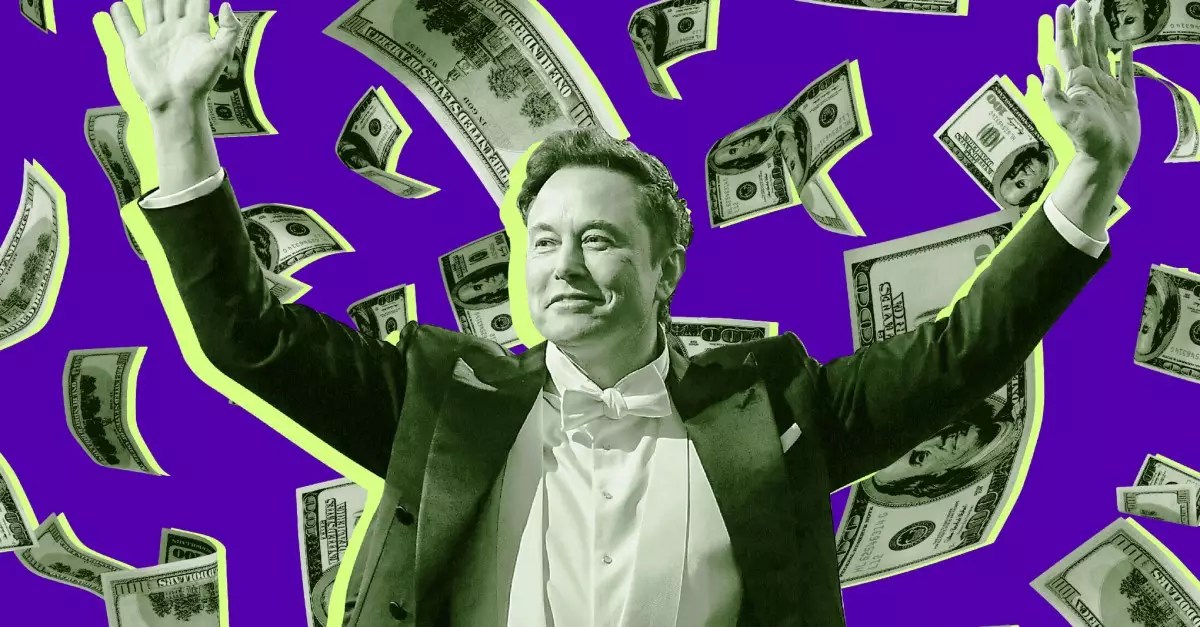The battle for supremacy in the artificial intelligence landscape has taken an electrifying turn with Elon Musk’s latest initiative to acquire OpenAI’s nonprofit segment. Announced through The Wall Street Journal, this monumental offer amounts to a staggering $97.4 billion and illustrates Musk’s growing desire to redefine the course of AI development as he perceives it. With a coalition of formidable allies supporting the bid, Musk is poised to shake the foundations of AI and challenge its governance, especially against the backdrop of OpenAI’s shifting priorities.
Leading Musk’s ambitious venture is xAI, his AI-focused company. This bid is further strengthened by the backing of notable entities such as Valor Equity Partners and prominent figures like Ari Emanuel from Hollywood and Joe Lonsdale from 8VC. This diverse coalition represents not just financial power but also an amalgamation of influences across industries, signaling Musk’s comprehensive approach to the AI arena. By enlisting such a diverse group of stakeholders, Musk aims to consolidate resources and create a formidable front, thereby intensifying the existing competition among tech giants.
Timing and Stakes: OpenAI’s Fork in the Road
This high-stakes bid comes at a critical juncture for OpenAI, triggered by CEO Sam Altman’s ambitious strategies that include transitioning to a for-profit model, securing a monumental $40 billion investment at a whopping $340 billion valuation, and planning a radical $500 billion AI infrastructure project. These complex moves are indicative of a larger pivot within OpenAI—a shift Musk claims deviates from the organization’s foundational commitment to responsible and safe AI development. The unfolding tension showcases a multifaceted interplay of ambition, strategy, and rivalry in Silicon Valley.
A Historical Perspective
Musk’s relationship with OpenAI has evolved markedly since he co-founded the organization in 2015 before departing in 2019. His escalated stance against OpenAI appears to be driven by a syncretic blend of nostalgia for its initial objectives and a deep-seated concern over its current trajectory. During a recent statement, Musk reiterated the need for OpenAI to revert to its roots—emphasizing transparency and safety—traits he believes are being compromised in its pursuit of profits. This rhetoric is not merely posturing; it encapsulates a philosophical battle regarding the ethical underpinnings of AI development.
As this saga unfolds, the implications for the broader AI ecosystem are profound. Should Musk’s bid succeed, the ramifications would extend beyond just OpenAI; it could reshape the competitive dynamics within the tech industry, prompting others to reconsider their strategies in AI development. Furthermore, if Musk follows through on his promise to match or exceed competing offers for OpenAI, it could lead to a fierce bidding war, diverting resources and attention from innovation to acquisition strategies.
Elon Musk’s audacious bid signifies more than just a business maneuver; it represents a critical reflection on the ethics of AI governance and development. As companies navigate the complex interplay between profit and public safety, the paths they choose will indelibly shape the future of technology. In the throes of this rivalry, one thing is clear: the stakes have never been higher, and the outcome will have lasting repercussions on how artificial intelligence impacts societies across the globe.


Leave a Reply